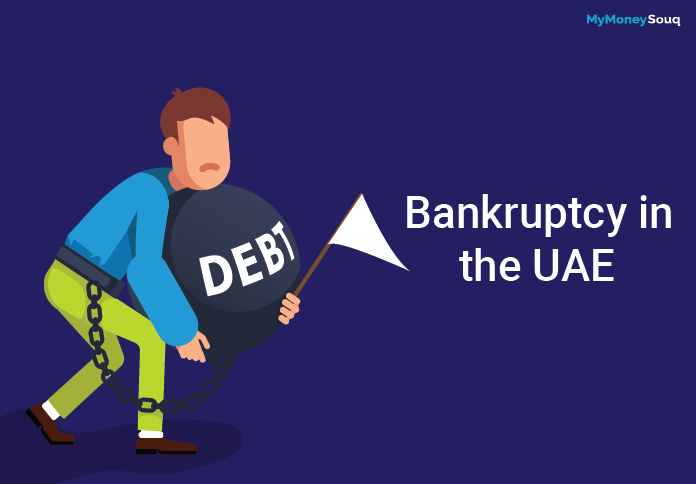Bankruptcy is a legal process that allows huge debt holders, especially businessmen to flunk the debt under certain financial circumstances where they can’t repay the debt. It definitely provides relief from the debt but it is not as simple as it seems to be. The process to declare bankruptcy and the after-effects are serious and huge.
The Process of Bankruptcy
People who are struggling with huge debts are provided relief through bankruptcy. This legal option is only considered by people who have huge debts like personal loans, credit cards, home mortgage, etc. and they are not able to manage it at all. Hence it is the last resort when they find no other option to get out of the debts.
Check: Good Debt vs Bad Debt
The process of bankruptcy is definitely a complex one. This is not an in-and-out process that just involves a form filling and you are done with the debts. The debt holder needs to get an attorney who has good experience with bankruptcy law. Then there will be credit counselling sessions conducted for the debt holder where the counsellor takes your budget into consideration and explain the pros & cons. If you still want to proceed with the bankruptcy option, a case will be filed. Meanwhile the same will be added to the credit report and the status of debt will be updated to “Automatic Stay” and this stops the calls of the debt collectors.
As the next step, the court possesses the authority to liquidate any assets that can be used to repay the debt. If there are no such valuable assets, then your case will be considered “No Asset Case”.
Also, note that if you have any secured loans like home loan, car loan, etc. and you wish to have the assets, then they will be removed from the list and you will continue to pay the payments as usual.
Finally, all the eligible debts are dissolved by selling the valuable possessions. This entire process can take up to 6 months.
Also, check: How does the 20/10 rule help in Debt Management?
Advantages of Bankruptcy
The key advantage of bankruptcy is the relief the debt holder gets. Usually, when an individual is given a loan, they are expected to clear it on time and when that doesn’t happen, banks or financial institutions provide a few months grace period to the loan holders to settle the dues. Even after the grace period, if the loan holder doesn’t respond then debt collectors take action by adding pressure to pay the debts. Also, they are authorised to take any legal action if required like proceeding with the empty cheques.
So once the bankruptcy is filed, the calls from debt collectors are stopped which can be a relief.
Disadvantages of Bankruptcy
Bankruptcy is definitely not a recommended process to debt holders. There are several disadvantages of it like,
- The main disadvantage of bankruptcy is it drops the credit score badly. It stays on the credit report for 7 – 10 years affecting all the chances of getting a new loan or credit card completely. Even if you get a loan later, the creditors might take advantage of the situation by charging hefty interest rates on the loan.
- The process of bankruptcy can take from 4 to 6 months.
- The bankruptcy process exposes your entire finances to the public and involves scrutiny.
- You will lose all your valuable assets like a house, car, gold, and much more. If you want to have them for yourselves, you need to pay the loans.
Maybe interested: Follow these tips to manage your Debt
Bankruptcy law in the UAE
The UAE Federal Law No 9 of 2016 which is also known as “Bankruptcy Law” gives two options to the debtors. The first one is the debtor can settle the case with the lender by negotiating and giving the debtors a 30 working days time period. This gives the lender a chance to clear the debts. And the other way is liquidating the assets. If the debtor goes insolvent with no valuable assets that can clear the debt then bankruptcy is declared.
Bankruptcy is not an easy option to take up. Every individual who is planning to take such a decision needs to think again if they have any other way to clear the debts and have a bankruptcy declaration as the last option.
About the author
Nikitha is a Senior Analyst at MyMoneySouq.com. She has been writing about personal finance, credit cards, mortgage, and other personal finance products in the UAE. Her work on Mortgage loans has been featured by the GulfNews and other popular Financial Blogs in the UAE.


